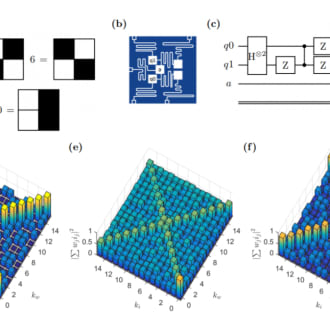The Best of MIT Technology Review
20+ most popular MIT Technology Review articles, as voted by our community.
Trending
These are currently making the rounds on Refind.
Let’s not make the same mistakes with AI that we made with social media
Social media’s unregulated evolution over the past decade holds a lot of lessons that apply directly to AI companies and technologies.
«The expansive role of these technologies in our daily lives gives for-profit corporations opportunities to exert control over more aspects of society, and that exposes us to the risks arising from their incentives and decisions.»
Four things you need to know about China’s AI talent pool
Researchers from China make up over one-quarter of the world’s top AI experts, and they are increasingly staying put rather than moving overseas.
What’s next for generative video
OpenAI's Sora has raised the bar for AI moviemaking. Here are four things to bear in mind as we wrap our heads around what's coming.
The tech industry can’t agree on what open-source AI means. That’s a problem.
The answer could determine who gets to shape the future of the technology.
Tackling AI risks: Your reputation is at stake
Assessing AI risks in the context of their use, rather than as inherent in the technologies themselves, leads to smarter and safer implementations.
MIT Technology Review on Artificial Intelligence
Why Meta’s latest large language model only survived three days online
Galactica was supposed to help scientists. Instead, it mindlessly spat out biased and incorrect nonsense.
ChatGPT is about to revolutionize the economy. We need to decide what that looks like.
New large language models will transform many jobs. Whether they will lead to widespread prosperity or not is up to us.
MIT Technology Review on Biotech
Biotech labs are using AI inspired by DALL-E to invent new drugs
Two groups have announced powerful new generative models that can design new proteins on demand not seen in nature.
A biotech startup is making cow-free ice cream. Would you eat it?
Perfect Day says it’s figured out how to make ice cream that’s creamy without any animal protein.
MIT Technology Review on Chatgpt
GPT-4 is bigger and better than ChatGPT—but OpenAI won’t say why
We got a first look at the much-anticipated big new language model from OpenAI. But this time how it works is even more under wraps.
The inside story of how ChatGPT was built from the people who made it
Exclusive conversations that take us behind the scenes of a cultural phenomenon.
MIT Technology Review on China
China just announced a new social credit law. Here’s what it means.
The West has largely gotten China’s social credit system wrong. But draft legislation introduced in November offers a more accurate picture of the reality.
«In just one example, the province of Liaoning said in August that it’s exploring how to reward blood donation in the financial credit system.)»
Who needs democracy when you have data?
Here’s how China rules using data, AI, and internet surveillance.
MIT Technology Review on Deepfakes
Memers are making deepfakes, and things are getting weird
Grace Windheim had heard of deepfakes before. But she had never considered how to make one. It was a viral meme using the technology that led her to research the possibility—and discover that it was…
The year deepfakes went mainstream
In 2020, AI-synthetic media started moving away from the darker corners of the internet.
MIT Technology Review on Future
Technology that lets us speak to our dead relatives has arrived. Are we ready?
Digital clones of the people we love could forever change how we grieve.
«AI large language models (LLMs), which can ingest a few “prompt” sentences and spit out convincing text in response, promise to unlock even more powerful ways for humans to communicate with machines.»
AI might not steal your job, but it could change it
AI is already being used in the legal field. Is it really ready to be a lawyer?
MIT Technology Review on Genetics
EXCLUSIVE: Chinese scientists are creating CRISPR babies
A daring effort is under way to create the first children whose DNA has been tailored using gene editing.
Has this scientist finally found the fountain of youth?
Editing the epigenome, which turns our genes on and off, could be the “elixir of life”.
MIT Technology Review on Quantum Computing
Machine learning, meet quantum computing
A quantum version of the building block behind neural networks could be exponentially more powerful.
«The big advantage of quantum computing is that it allows an exponential increase in the number of dimensions it can process.»
A startup uses quantum computing to boost machine learning
If it fulfills its promise, quantum machine learning could transform AI.
MIT Technology Review on Science
Eric Schmidt: This is how AI will transform the way science gets done
Science is about to become much more exciting—and that will affect us all, argues Google's former CEO.
«Moving on to the experimentation step, AI will be able to conduct experiments faster, cheaper, and at greater scale. For example, we can build AI-powered machines with hundreds of micropipettes running day and night to create samples at a rate no human could match. Instead of limiting themselves to just six experiments, scientists can use AI tools to run a thousand.»
AI has cracked a key mathematical puzzle for understanding our world
Unless you’re a physicist or an engineer, there really isn’t much reason for you to know about partial differential equations. I know. After years of poring over them in undergrad while studying…
MIT Technology Review on Technology
The coming war on the hidden algorithms that trap people in poverty
A growing group of lawyers are uncovering, navigating, and fighting the automated systems that deny the poor from housing, jobs, and basic services.
Popular
These are some all-time favorites with Refind users.
Social media is polluting society. Moderation alone won’t fix the problem
Companies already have the systems in place that are needed to evaluate their deeper impacts on the social fabric.
«Facebook’s 2012 “emotional contagion” experiment, which showed that users’ affect (their mood as measured by their behavior on the platform) shifted measurably depending on which version of the product they were exposed to»
10 Breakthrough Technologies 2020
MIT Technology Review’s 10 Breakthrough Technologies for 2020 outlines scientific discoveries, available now or in the very near future, that could most profoundly change people’s lives. Included this year: unhackable internet service; individual designer drugs; the proliferation of digital currency; anti-aging treatments; AI molecule searches for better medicines; satellite constellations boosting remote internet access; new uses for quantum computers, tiny, powerful AI apps for phones; bolstering Census privacy; and more accurate climate change forecasts.
Meta has built a massive new language AI—and it’s giving it away for free
Facebook’s parent company is inviting researchers to pore over and pick apart the flaws in its version of GPT-3
If you’re so smart, why aren’t you rich? Turns out it’s just chance.
The most successful people are not the most talented, just the luckiest, a new computer model of wealth creation confirms. Taking that into account can maximize return on many kinds of investment.
Yann LeCun has a bold new vision for the future of AI
One of the godfathers of deep learning pulls together old ideas to sketch out a fresh path for AI, but raises as many questions as he answers.
What is Refind?
Every day Refind picks the most relevant links from around the web for you. is one of more than 10k sources we monitor.
How does Refind curate?
It’s a mix of human and algorithmic curation, following a number of steps:
- We monitor 10k+ sources and 1k+ thought leaders on hundreds of topics—publications, blogs, news sites, newsletters, Substack, Medium, Twitter, etc.
- In addition, our users save links from around the web using our Save buttons and our extensions.
- Our algorithm processes 100k+ new links every day and uses external signals to find the most relevant ones, focusing on timeless pieces.
- Our community of active users gets the most relevant links every day, tailored to their interests. They provide feedback via implicit and explicit signals: open, read, listen, share, mark as read, read later, «More/less like this», etc.
- Our algorithm uses these internal signals to refine the selection.
- In addition, we have expert curators who manually curate niche topics.
The result: lists of the best and most useful articles on hundreds of topics.
How does Refind detect «timeless» pieces?
We focus on pieces with long shelf-lives—not news. We determine «timelessness» via a number of metrics, for example, the consumption pattern of links over time.
How many sources does Refind monitor?
We monitor 10k+ content sources on hundreds of topics—publications, blogs, news sites, newsletters, Substack, Medium, Twitter, etc.
Can I submit a link?
Indirectly, by using Refind and saving links from outside (e.g., via our extensions).
How can I report a problem?
When you’re logged-in, you can flag any link via the «More» (...) menu. You can also report problems via email to hello@refind.com
Who uses Refind?
450k+ smart people start their day with Refind. To learn something new. To get inspired. To move forward. Our apps have a 4.9/5 rating.
Is Refind free?
Yes, it’s free!
How can I sign up?
Head over to our homepage and sign up by email or with your Twitter or Google account.




























